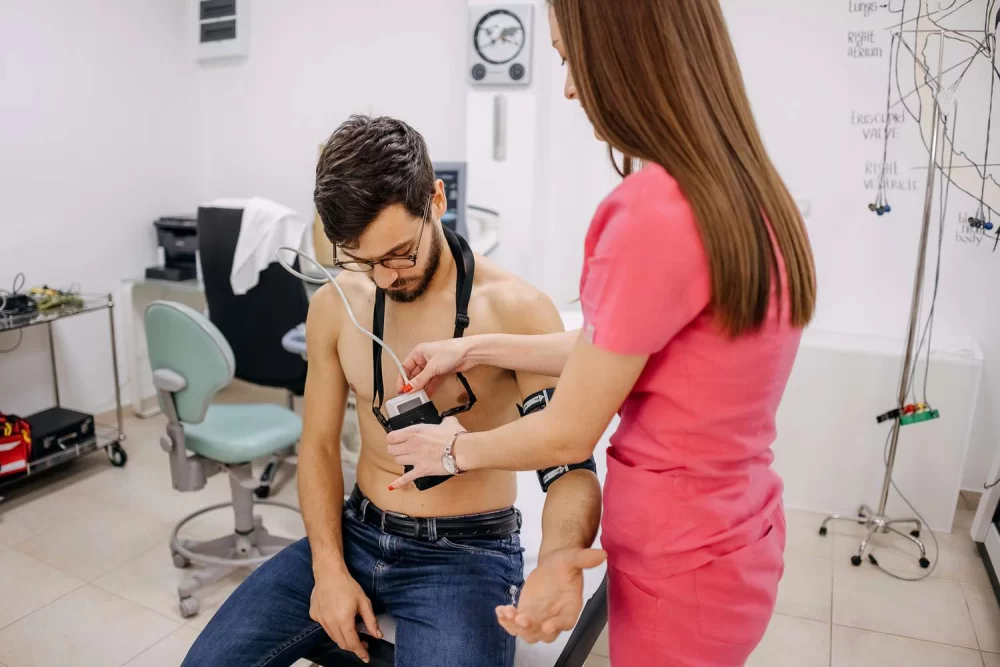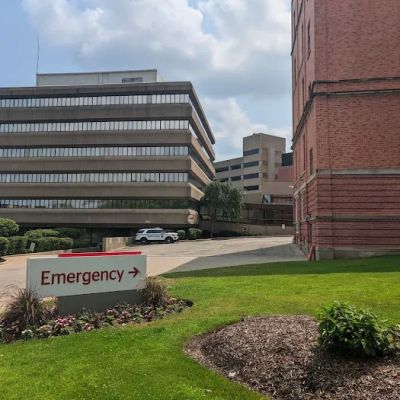When My Heart Skipped More Than a Beat
I still remember the first time it happened. I was sitting at my desk, working on a report, when I felt my chest flutter — almost like a bird was trapped inside. My heart started racing, my breathing got shallow, and for a moment, I thought I might pass out. It passed in a few minutes, but I knew something wasn’t right. That episode led to my diagnosis with atrial fibrillation — and it changed the way I see heart health forever.

The Warning Signs I Missed
Before that scary day at work, there were signs — I just didn’t know how to read them. I blamed everything on stress or caffeine. Looking back, I wish someone had told me what to look for sooner. Here’s what I experienced, and what you should watch out for.
Sunjeet Sidhu, MD
sidhu doctor
Johnston Professional Bldg, 3333 N Calvert St # 650, Baltimore, MD 21218, USA

1. Irregular or Rapid Heartbeat
For weeks, I noticed odd sensations in my chest. Sometimes it felt like my heart skipped a beat. Other times, it felt like it was racing for no reason. I had chalked it up to anxiety. But these were actually classic signs of atrial fibrillation (AFib), where the upper chambers of the heart beat out of sync with the lower ones.
2. Dizziness and Fatigue
I found myself feeling unusually tired after walking up stairs or carrying groceries. It was subtle at first, but I started taking more breaks and needing longer naps. There were moments of lightheadedness that I now know were related to poor blood flow from an erratic heartbeat.
3. Shortness of Breath
This one crept up slowly. I’d be walking with friends and find myself out of breath when no one else was. It was embarrassing, and I blamed it on being out of shape. But even after improving my fitness, the breathlessness didn’t go away — because the real issue was my heart rhythm.
When I Finally Saw a Doctor
The day I ended up in the ER was the day I stopped guessing. The palpitations had lasted longer than usual — nearly 20 minutes — and I felt light-headed enough to call for help. The ER doctor ran an EKG and within minutes told me I had atrial fibrillation. I remember feeling both terrified and relieved — finally, there was a name for what I’d been experiencing.
1. Tests That Helped Confirm the Diagnosis
After that ER visit, I had a series of tests: echocardiogram, Holter monitor, and blood work to check for underlying causes. These helped my cardiologist determine that my AFib wasn’t caused by structural heart issues, but likely a mix of stress, genetics, and lifestyle factors.
2. Understanding the Risks
What really got my attention was learning that AFib significantly raises the risk of stroke. When the heart doesn't pump blood effectively, clots can form in the atria. If one travels to the brain, it can cause a stroke. That sobering fact changed how seriously I took my condition — and my health.
3. Treatment Options I Considered
My treatment began with a low-dose beta blocker to control my heart rate and a blood thinner to reduce stroke risk. Over time, I also tried rhythm control medications. Lifestyle changes played a huge role too — cutting back on alcohol, improving sleep, and managing stress became part of my routine.
Knowing When to See a Doctor
AFib symptoms can range from mild to severe — or even silent. Some people don’t know they have it until they suffer a stroke. That’s why I always urge friends and family to listen to their bodies and get checked if something feels “off.”
1. If You Feel Palpitations or Irregular Pulses
Even if it only happens occasionally, an erratic heartbeat should never be ignored. Use a smartwatch or check your pulse manually. If it feels irregular or unusually fast, talk to your doctor. A simple EKG can reveal more than you might expect.
2. If You Experience Sudden Dizziness or Fainting
This was a red flag for me. Fainting or near-fainting can indicate serious disruptions in blood flow and should always be evaluated. I’ve met other patients who discovered AFib only after losing consciousness.
3. If You Have Chest Discomfort or Shortness of Breath
While not always painful, discomfort in the chest paired with shortness of breath can signal AFib — or worse. Don’t wait it out. Get evaluated to rule out heart attack, stroke risk, or other arrhythmias.
Living with AFib — and Thriving
Today, my atrial fibrillation is well-managed. I take my medications, get regular check-ups, and live more mindfully. I still feel the occasional flutter, but now I know what to do. Knowledge made all the difference for me — and it can for you too. If you’ve felt anything like what I described, please don’t ignore it. The earlier you act, the more options you’ll have.
And if you’re navigating similar symptoms, I highly recommend connecting with HeartCare Hub. They’ve provided me with personalized tools and support to stay informed, proactive, and empowered in managing my heart health.






















Penn Presbyterian Medical Center
penn presbyterian doctors
51 N 39th St, Philadelphia, PA 19104, USA